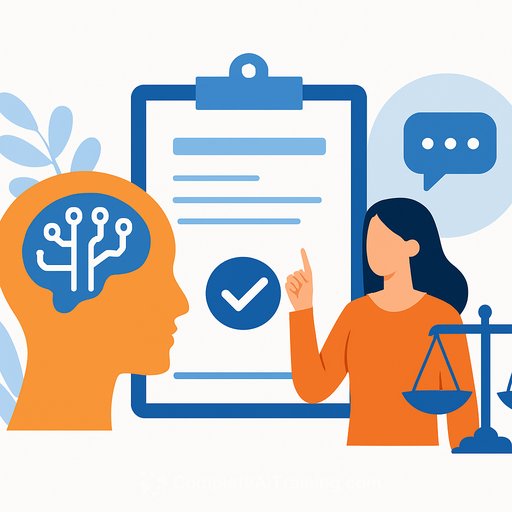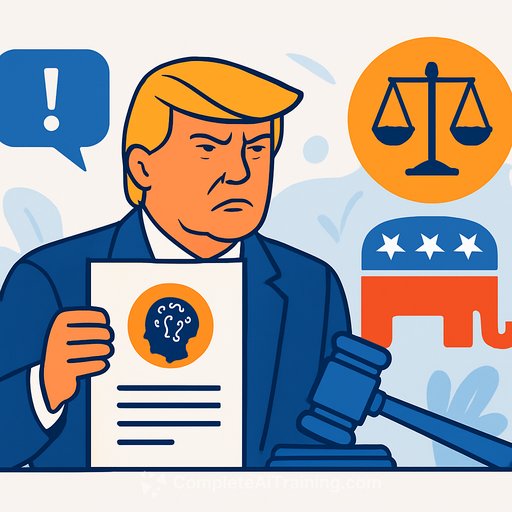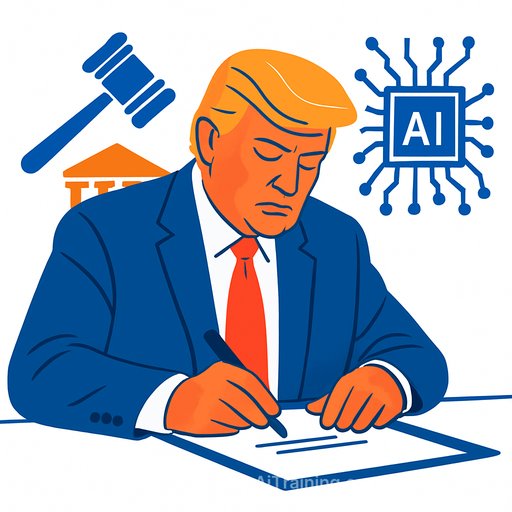Towards a Rights-Based AI Framework in India: Bridging Global Models and Constitutional Duties
Artificial Intelligence systems trained on biased data risk entrenching discrimination against caste, class, and gender minorities. In India, where welfare schemes serve as vital support for millions, algorithmic exclusion can lead to severe real-world consequences.
A stark international example is Australia's Robodebt scandal, where an automated system wrongly accused over 400,000 welfare recipients of income fraud, leading to fines, distress, and judicial condemnation in 2019. Closer to home, Delhi’s predictive policing system CMAPS (Crime Mapping Analytics and Predictive System) replicates human police biases, disproportionately targeting areas dominated by caste and religious minorities. This creates a self-reinforcing surveillance loop.
In EdTech, during the COVID-19 lockdown, AI-based proctoring systems disproportionately flagged students from marginalized communities. Nervousness or discomfort with cameras was mistaken for suspicious behavior, underscoring the risk of biased AI decisions.
These cases expose a critical gap: India lacks a legal or policy framework that guarantees enforceable individual rights against AI-driven decisions. Questions arise: Who is accountable when AI discriminates? What remedies exist when public algorithms malfunction? There is an urgent need for AI regulations guaranteeing transparency, explanation, appeal, redressal, and non-discrimination—principles grounded in constitutional values upheld by the Supreme Court in K.S. Puttaswamy v. Union of India.
The Legal Vacuum in Existing Frameworks
India currently does not have a comprehensive legal framework specifically regulating AI. Yet, AI is deployed across critical sectors like healthcare, banking, education, and governance. This raises serious concerns when AI decisions affect fundamental rights.
The Digital Personal Data Protection (DPDP) Act, 2023 is a positive step in data governance, introducing user consent and purpose limitation to prevent misuse of personal data. However, it does not address AI-specific challenges such as opaque decision-making, algorithmic discrimination, and lack of human oversight.
Consider a credible loan applicant from a rural or economically weaker background who is denied a loan by an opaque AI system used by a public sector bank. The rejection may be based on biased training data linked to the applicant’s pin code, education, or socio-economic status. Who bears responsibility—the developer or the deploying institution? How can the applicant understand or contest a decision made by an inscrutable AI system?
Unchecked AI control risks introducing a modern form of discrimination that India’s legal system is not currently equipped to handle. This underscores the need for standalone AI regulation or a Digital Rights Charter to subject algorithmic decisions to constitutional scrutiny, especially in high-impact public sectors.
What Is a Rights-Based AI Framework?
A rights-based AI framework centers on individual rights and constitutional values. Its goal is to balance technological progress with justice, accountability, and human dignity. The framework must embed enforceable rights such as transparency, consent, fairness, and redressal.
Right to Explanation
Article 19(1)(a) of the Indian Constitution guarantees the right to information as a fundamental right, as interpreted by the Supreme Court in Union of India v. Association for Democratic Reforms. AI developers should have a statutory obligation to design systems that are transparent and interpretable.
The European Union’s AI Act offers a useful model, classifying AI systems by risk and granting affected individuals the right to clear, meaningful explanations (Article 86). In India, AI systems deployed in sectors like healthcare, banking, education, and law enforcement must provide accessible, timely explanations for their decisions. These explanations should be in formats and languages understandable to affected individuals, ensuring accountability beyond technical outputs.
Right to Appeal and Contest
A rights-based framework must guarantee human review of automated decisions. This includes transparency, timely notice, access to personal data used, and the ability to contest AI-made decisions.
India should establish dedicated tribunals or courts for AI-related grievances. An AI Governance Board of India could oversee these bodies, including:
- One AI technology expert
- One retired judge
- One representative from the Ministry of Electronics and Information Technology (MeitY)
- One member nominated by the Central Government
This Board would set standards and procedures for redressal authorities, similar to the Bar Council of India’s regulation of the legal profession. Appeal mechanisms must address individual grievances and broader structural accountability. Existing systems like the Right to Information Act or consumer courts are not equipped to handle technical algorithmic harm. Specialized AI tribunals would fill this void.
Right to Non-Discrimination: Algorithmic Fairness
Algorithms must uphold constitutional values of equality, justice, and fairness under Articles 14, 19, and 21. Opaque AI decision-making risks reinforcing systemic biases. Since AI increasingly forms part of social infrastructure, it must reflect the values that guide public institutions.
The objective is clear: equals must be treated equally, and AI must not exacerbate social inequities.
Right to Consent and Notification
Individuals must be informed when AI is used in decisions affecting them. Consent should be informed, voluntary, and free from coercion. The U.S. AI Bill of Rights blueprint (2024) highlights this right as foundational, mandating transparent, accessible communication.
India must adopt similar safeguards in its upcoming AI legislation to ensure users know when AI influences decisions.
Right to Redressal
Accessible forums for grievance redressal and fair compensation are essential. Whether the harm involves loan denial, welfare exclusion, or educational penalties, victims of algorithmic decisions need timely, effective, and enforceable remedies.
Without this, public trust in AI will erode, and constitutional due process will be compromised. Responsibility must lie not only with technology but also with developers and deploying institutions.
Just as India mandates Environmental Impact Assessments (EIA), it should introduce AI Impact Assessments (AIA) for high-risk AI systems. These assessments must be transparent, participatory, and include stakeholders.
A proposed Artificial Intelligence Board of India could oversee these assessments and guide grievance redressal structures.
Defining AI and Regulatory Approach
The regulatory framework should cover any automated system operating without human oversight. India has the opportunity to create a hybrid model combining rights-based protections with the EU’s risk-based classification. Such a framework can promote innovation while safeguarding justice and dignity for all.
A strong AI rights framework supports democracy. In a country with deep social inequities and constitutional protections, ensuring AI respects fundamental rights is essential.
For legal professionals engaging with AI policy and governance, understanding these rights and frameworks is critical. A comprehensive, rights-centered approach to AI regulation will ensure technology serves society without compromising justice and fairness.
For further insights on AI governance and ethics, explore resources available at Complete AI Training.
Your membership also unlocks:






